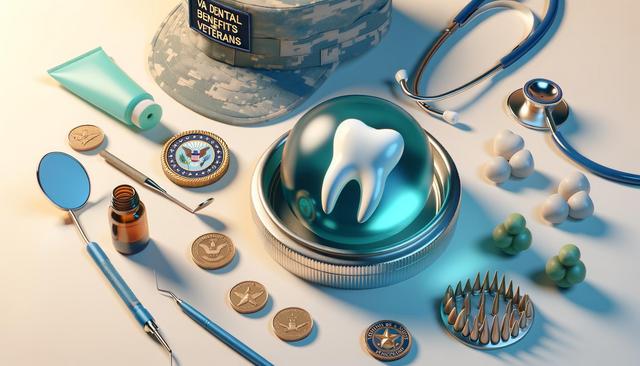Eligibility for VA Dental Benefits
Access to dental care through the Department of Veterans Affairs (VA) is determined by several eligibility factors. Unlike general VA health benefits, dental benefits are more limited and not all veterans automatically qualify. Eligibility is typically based on service-connected conditions, disability status, and participation in specific VA programs. Veterans may qualify if they meet one or more of the following criteria:
- Have a service-connected dental condition or disability rated at 100%
- Were a prisoner of war (POW)
- Are receiving care or scheduled for inpatient care, and require dental treatment as part of the overall care
- Are enrolled in a qualifying VA rehabilitation program
It’s important for veterans to verify their eligibility through the VA directly or via an accredited representative. The VA official website and regional offices can provide personalized assessments to determine qualification status.
Types of Dental Services Covered
The scope of dental services available through the VA depends on the veteran’s eligibility category. Comprehensive coverage is typically reserved for those with a service-connected dental disability or those who are 100% disabled due to a service-connected condition. For eligible individuals, services may include:
- Routine cleanings and exams
- Restorative procedures like fillings and crowns
- Oral surgeries including extractions
- Prosthodontics such as dentures and implants
- Treatment for gum disease and infections
Veterans who qualify under limited eligibility criteria may receive only emergency or condition-specific dental treatment. Understanding what services are covered is crucial for planning and budgeting future dental care.
Enrollment and Accessing Care
To receive dental benefits, veterans must first enroll in the VA health care system. Once enrolled, they can apply for dental coverage by submitting VA Form 10-10EZ, either online or in person. After the application is processed, the VA will notify the veteran of their eligibility and the type of dental services available to them.
Dental care is provided through VA dental clinics or contracted community providers. Scheduling an appointment may vary by location, and wait times can differ depending on demand. Veterans are encouraged to maintain regular checkups to avoid urgent dental issues and ensure consistent care. Local VA centers and the VA dental eligibility hotline can assist with finding nearby providers and appointment availability.
Options for Veterans Not Eligible for VA Dental
For veterans who do not qualify for VA dental benefits, alternative solutions are available. The VA has partnered with other programs to offer reduced-cost dental care and insurance options. These include:
- VA Dental Insurance Program (VADIP), which provides discounted insurance plans through private carriers
- Community dental clinics and federally qualified health centers (FQHCs)
- Dental schools offering low-cost services from supervised students
- State and local assistance programs for underserved populations
Exploring these alternatives may help veterans maintain oral health even if they don’t meet the criteria for VA dental coverage. In many cases, these options offer flexible pricing and payment plans tailored to veterans’ needs.
Tips for Maximizing Your VA Dental Benefits
Once enrolled and eligible, veterans can take proactive steps to make the most of their dental benefits. Understanding how the system works and staying informed about updates can lead to better care outcomes. Here are a few tips to consider:
- Schedule regular exams to catch issues early and maintain oral health
- Keep records of all dental treatments and correspondence with the VA
- Consult with a VA patient advocate for help navigating complex cases
- Stay updated on changes to VA policies or benefit programs
- Use VA online portals to manage appointments and communicate with providers
By being proactive and engaged, veterans can ensure they’re receiving the highest level of care available to them through the VA system or alternative programs.
Conclusion: Supporting Veterans’ Oral Health
VA dental benefits can be a valuable resource for eligible veterans seeking to maintain good oral health. While not every veteran qualifies for full coverage, understanding the eligibility requirements and available alternatives is key to making informed decisions. For those who do qualify, taking full advantage of the benefits through regular care and communication with VA providers can lead to better long-term health outcomes. For others, exploring programs such as VADIP or community clinics ensures that dental care remains accessible. Prioritizing oral health is an important part of overall wellness and quality of life for veterans.


